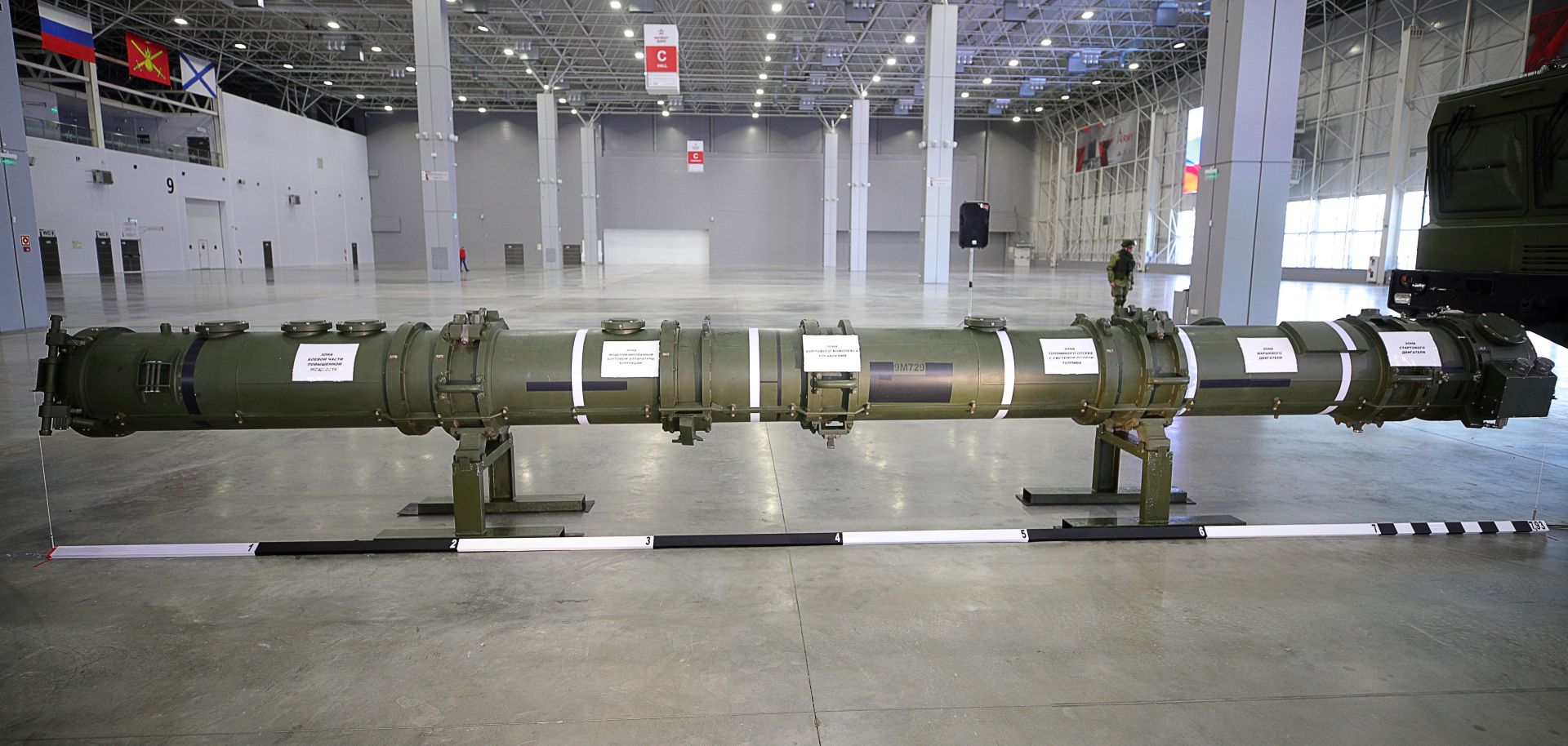ASSESSMENTS
Russia Approaches a Post-INF Arms Race in Europe With Caution
Sep 2, 2019 | 09:00 GMT

The 9M729 missile demonstrated after a briefing for military attaches and international media by the Russian Defence Ministry at the Patriot Congress and Exhibition Centre in Kubinka, Moscow Region, on the 9M729 missile system; Russia does not recognize the USA's unilateral decision to quit the 1987 INF disarmament treaty (the Intermediate-Range Nuclear Forces Treaty). Sergei Bobylev/TASS (Photo by Sergei Bobylev\TASS via Getty Images)
(SERGEI BOBLEV/TASS via Getty Images)
Highlights
- Land-based intermediate-range missiles could make a comeback in Europe in significant numbers, though this is unlikely in the short term.
- Russia will likely decide that deploying such missiles, and so addressing NATO's advantage in air power and ballistic missile defenses, would outweigh a reciprocal U.S. deployment of those weapons in Europe.
- Having largely succeeded at deflecting blame for the Intermediate-Range Nuclear Forces (INF) Treaty's collapse onto the United States, Moscow would work to maintain these perceptions as it builds up its missile arsenal.
Subscribe Now
SubscribeAlready have an account?
